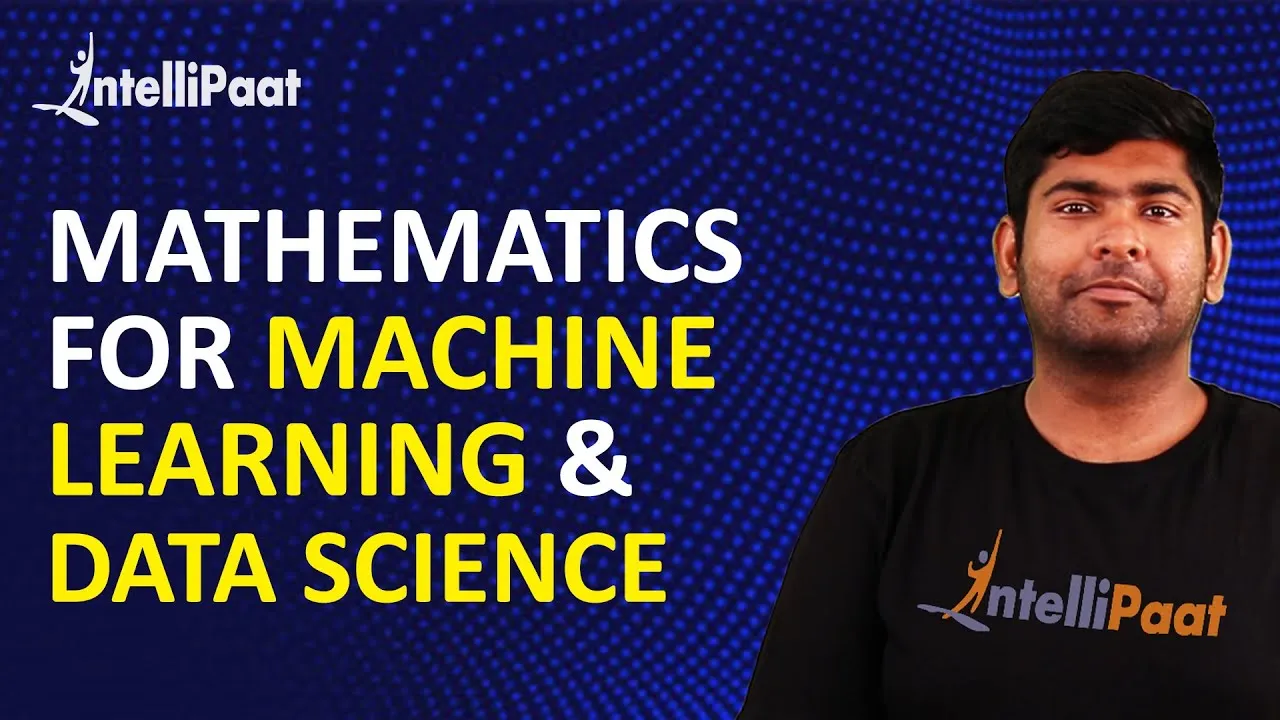
Mathematics for Machine Learning 
This course provides a comprehensive introduction to mathematics for machine learning, designed to equip data science architects with the necessary skills to develop and deploy machine learning models. ▼
ADVERTISEMENT
Course Feature
![]() Cost:
Cost:
Free
![]() Provider:
Provider:
Youtube
![]() Certificate:
Certificate:
No Information
![]() Language:
Language:
English
![]() Start Date:
Start Date:
Self Paced
Course Overview
❗The content presented here is sourced directly from Youtube platform. For comprehensive course details, including enrollment information, simply click on the 'Go to class' link on our website.
Updated in [March 06th, 2023]
Mathematics for Machine Learning:
1. Learners can gain an understanding of the fundamentals of mathematics for data science, such as statistics, probability, sampling techniques, central tendencies, variation & correlation, normal distribution, empirical rules & z scores, and mathematics of linear regression.
2. Learners can develop the skills to apply these concepts to data science tasks, such as understanding the relationships between variables, predicting outcomes, and analyzing data.
3. Learners can gain an understanding of the mathematics behind linear regression, probability, and other machine learning algorithms, and how to use them to solve real-world problems.
4. Learners can gain an understanding of the importance of mathematics for machine learning, and how it can be used to improve the accuracy and efficiency of machine learning models.
[Applications]
The application of this course can be seen in various areas such as data science, machine learning, artificial intelligence, and predictive analytics. After completing this course, students will be able to apply the concepts of mathematics for machine learning to solve real-world problems. They will be able to use the concepts of probability, statistics, and linear regression to analyze data and make predictions. They will also be able to use the concepts of sampling techniques, central tendencies, variation & correlation, normal distribution, and empirical rules & z scores to gain insights from data.
[Career Paths]
1. Data Scientist: Data Scientists are responsible for collecting, analyzing, and interpreting large amounts of data to identify trends and patterns. They use a variety of techniques, such as machine learning, statistical analysis, and predictive modeling, to uncover insights and inform decisions. Data Scientists are in high demand as organizations increasingly rely on data-driven decision making.
2. Machine Learning Engineer: Machine Learning Engineers are responsible for developing and deploying machine learning models. They use a variety of techniques, such as supervised and unsupervised learning, to create models that can be used to make predictions and automate tasks. Machine Learning Engineers must have a strong understanding of mathematics, statistics, and computer science.
3. Artificial Intelligence Engineer: Artificial Intelligence Engineers are responsible for developing and deploying AI-based systems. They use a variety of techniques, such as natural language processing, computer vision, and deep learning, to create systems that can understand and interact with humans. Artificial Intelligence Engineers must have a strong understanding of mathematics, statistics, and computer science.
4. Business Intelligence Analyst: Business Intelligence Analysts are responsible for collecting, analyzing, and interpreting data to inform business decisions. They use a variety of techniques, such as data mining, predictive analytics, and data visualization, to uncover insights and inform decisions. Business Intelligence Analysts must have a strong understanding of mathematics, statistics, and business.
[Education Paths]
1. Bachelor of Science in Mathematics: This degree program provides students with a comprehensive understanding of mathematics and its applications in various fields. Students learn the fundamentals of calculus, linear algebra, and statistics, as well as more advanced topics such as differential equations, numerical analysis, and optimization. This degree is ideal for those interested in pursuing a career in data science, as it provides the necessary foundation for understanding the mathematics behind machine learning algorithms.
2. Master of Science in Data Science: This degree program focuses on the application of mathematics and statistics to data analysis and machine learning. Students learn the fundamentals of data science, including data mining, data visualization, and predictive analytics. They also gain an understanding of the mathematics behind machine learning algorithms, such as linear regression, logistic regression, and neural networks. This degree is ideal for those interested in pursuing a career in data science, as it provides the necessary skills and knowledge to develop and deploy machine learning models.
3. Doctor of Philosophy in Machine Learning: This degree program focuses on the development and application of machine learning algorithms. Students learn the fundamentals of machine learning, including supervised and unsupervised learning, deep learning, and reinforcement learning. They also gain an understanding of the mathematics behind machine learning algorithms, such as linear regression, logistic regression, and neural networks. This degree is ideal for those interested in pursuing a career in research or academia, as it provides the necessary skills and knowledge to develop and deploy machine learning models.
Developing trends in these degree paths include the use of artificial intelligence and machine learning to automate processes and improve decision-making. Additionally, the use of big data and analytics is becoming increasingly important in the field of data science, and students are learning how to use these tools to gain insights from large datasets. Finally, the use of cloud computing is becoming more prevalent, and students are learning how to use cloud-based services to store and analyze data.
Course Provider

Provider Youtube's Stats at AZClass
Discussion and Reviews
0.0 (Based on 0 reviews)
Explore Similar Online Courses

Health Guidelines for Avoiding Infectious Diseases Course

Free Piano Tutorial - Learn Piano in 45 Days (Part One)

Python for Informatics: Exploring Information

Social Network Analysis

Introduction to Systematic Review and Meta-Analysis

The Analytics Edge

DCO042 - Python For Informatics

Causal Diagrams: Draw Your Assumptions Before Your Conclusions

Whole genome sequencing of bacterial genomes - tools and applications

How I would learn Machine Learning (if I could start over)

Learn Data Science and Machine Learning on Microsoft Azure

Machine Learning for Everyone
 Related Categories
Related Categories
Quiz
 Submitted Sucessfully
Submitted Sucessfully
1. What is the main topic of this course?
2. What is the purpose of this course?
3. Which of the following topics is not covered in this course?


Start your review of Mathematics for Machine Learning